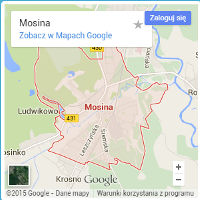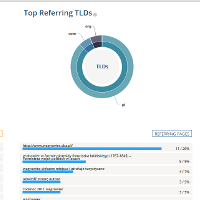For those planning to create their own website, we have prepared a section with the most frequently asked questions and their answers. If after reviewing the information published here you still have doubts about what to choose, we encourage you to contact us at contact[at]web-design.co.pl or via the contact form.

A popular saying goes: "If you're not on the Internet, you don't exist." Today, the Internet is the most popular medium that attracts users of all ages for long hours. It is logical, then, that most people looking for services, products, or information do so through the Internet. In just a few seconds, it allows them to find the website of a manufacturer, an online store, a local seller, or a service provider and learn about their offerings. Most users end their search at this stage and choose the best offer. If a company does not have a website, potential customers will end up with its competitors who do.
A website allows you to present your offer to a much wider audience than an advertisement in a newspaper, a signboard, or an announcement on a bulletin board. If you want to build a well-known brand and grow your business through expansion on the Internet, you should take care of having your own website.
There is no unequivocal answer to this question. It all depends on its purpose and the profile of the business conducted.

A company conducting sales exclusively at its local headquarters will suffice with a business card website containing basic contact and address information such as phone number, company location, opening hours, etc. Such a business card may present a general profile of the business, briefly summarize the history of the company, and describe product categories or services provided. Given that this type of service is not often updated, a content management panel is not necessary in this case.

An enterprise offering mail order sales will benefit the most if its website is an online store. This will allow it to reach a wider audience and significantly expand its customer base. Due to the need to manage orders, payments, mailing lists, sales analysis tools, etc., such a service must have an easy-to-use CMS panel.

A manufacturer, hotel, or restaurant may require their website to allow them to frequently update, modify prices, menus, information about available rooms, or new products. In their case, the best choice will be a website based on one of the ready-made or custom-made CMS systems.
In summary, before making a choice, you should consider the purpose of creating the website, what it has to offer to users, and how often it will be updated. After answering these questions, everyone will certainly be able to choose one of the above options.
When choosing a company or individual to design our website, several important factors should be taken into consideration, rather than just the price.

First and foremost, you should familiarize yourself with the work of the contractor you want to entrust with the task of designing and implementing your website. In this place, in addition to reviewing photos of completed websites and projects, it is worth visiting the completed services and checking how they work (e.g., whether they display well on different browsers, mobile devices, whether they work quickly and efficiently). If one of the above problems occurs in a single implementation, it is most likely the fault of the hosting; if the problem occurs in a significant part of the services, this should be taken into account when choosing and it is better to give up this company. In the case of a more extensive project with a content management system or an online store, it is worth asking the potential contractor for access to a test platform, where it will be possible to familiarize oneself with the functionality and assess the convenience of using the offered CMS.

Given that the construction of a website often requires consultations and project discussions, it is worth also considering the location of the contractor when making a choice. It will be much easier for us to meet with them if they operate in the area where our company is located. This will enable consultations during the creation of the website and possible assistance in case of later expansion or updates.

Here the matter is clear. The more experience the person carrying out our order has in implementing similar websites, the higher the chance that the final result will be 100% in line with our expectations. In the case where we have to choose between a contractor who has completed several similar projects and someone for whom this will be the first order of this type, there is no need to hesitate. Even if the more experienced company quotes the implementation twice as high as the competitor, it will still pay off for us. We will pay for a professional design and professional implementation that will not require corrections. In the case of choosing an inexperienced contractor, there is a high probability that it will be necessary to implement many corrections and refine the necessary modules. Usually, such work after the acceptance of the service is additionally paid, so the total cost incurred to eliminate errors can significantly increase the overall price of our own website.

If we know someone who has previously used the services of the company we want to entrust with the implementation of our website, it is worth asking how the cooperation went during the creation and implementation of the project and after its completion. In the case where we do not know anyone like that, it is worth spending some time and looking for opinions and comments on popular portals, in business directories and on discussion forums. A good place to start such searches is the Google Maps service.

The last element to consider when choosing a contractor is the cost of the service. It is better to avoid people offering prices that are significantly different from the competition. Let's try to avoid contractors offering both significantly lower prices (which may result from the use of outdated technologies or lack of experience, e.g. a programmer will learn to create such a site on our project) and much higher ones. The exception are website creators who have positively passed the verification in terms of all the above points.
There are two methods of adapting a website to mobile devices. The first one is a separate version of the site designed exclusively for mobile devices, and the second one is responsive websites that automatically adjust their appearance to the size of the browser window.
 Usually, the mobile version of the site is available as a subdomain m (m.gazeta.pl, m.onet.pl) or mobi (mobi.tauron-pe.pl, mobi.wroclaw.pl). You can also find mobile versions of websites with the mobi extension in the domain name (czytelnia.mobi), as well as those operating in a separate mobi directory placed on the server (online.ingbank.pl/mobi/). This type of mobile version is not the optimal solution, mainly for 2 reasons. On computers, such pages are usually very ugly, and browsing them is not very convenient. This results in the user quickly leaving the site. The second reason why creating this type of mobile version is disadvantageous is the duplication of content, for which search engines such as Google, Bing or Yandex lower the site's position in the ranking.
Usually, the mobile version of the site is available as a subdomain m (m.gazeta.pl, m.onet.pl) or mobi (mobi.tauron-pe.pl, mobi.wroclaw.pl). You can also find mobile versions of websites with the mobi extension in the domain name (czytelnia.mobi), as well as those operating in a separate mobi directory placed on the server (online.ingbank.pl/mobi/). This type of mobile version is not the optimal solution, mainly for 2 reasons. On computers, such pages are usually very ugly, and browsing them is not very convenient. This results in the user quickly leaving the site. The second reason why creating this type of mobile version is disadvantageous is the duplication of content, for which search engines such as Google, Bing or Yandex lower the site's position in the ranking. Responsive sites do not require creating a second separate version of the site. They automatically adjust to the resolution of the device on which they are displayed - computer, tablet, smartphone. They do not have a separate address, so the user does not have to remember under which location such a page should be launched (whether it is a subdomain m, mobile, mobile directory, or maybe a domain with the .mobile extension). In addition, responsive websites do not create problems with indexing duplicate content. An example of a responsive website is ours: web-design.co.pl
Responsive sites do not require creating a second separate version of the site. They automatically adjust to the resolution of the device on which they are displayed - computer, tablet, smartphone. They do not have a separate address, so the user does not have to remember under which location such a page should be launched (whether it is a subdomain m, mobile, mobile directory, or maybe a domain with the .mobile extension). In addition, responsive websites do not create problems with indexing duplicate content. An example of a responsive website is ours: web-design.co.plIf you don't have a device like a smartphone or tablet, you can check the mobile version by opening it in a computer browser and reducing its width.
A great way to test your own website for mobile-friendliness is to use Google's mobile-friendly testing tool. After analyzing the site, the tool will point out any issues that need to be adapted for mobile devices, or, as in the case of web-design.co.pl, it will display the following message: "Great! Your site is mobile-friendly".
Problems occurring on the website may result from many causes, so it is worth verifying them using several tools.
When we decide that our website should have a content management panel, the next difficult decision will be to choose the platform on which it will be based. Currently, there are hundreds of different solutions on the market, so choosing one of them can be overwhelming for a layman. As if that were not enough, we always have the option of developing an individual content management system. However, if we do not have non-standard requirements regarding the functionality of the platform on which our website will operate, in most cases it will be better to use a ready-made solution. An individually built system is rarely updated, and when such a need arises, it involves additional costs. Moreover, the development of such a platform usually requires extensive programming skills, so not every IT specialist will be able to modify it, so we will be forced to ask the company that created it to do so. By choosing one of the many standard CMSs, we can count on its further development and the possibility of updating to newer versions. Additionally, in the case of more well-known platforms, we can be sure that most modifications will be able to be introduced by any IT specialist.
For company websites presenting a product or business, WordPress or Joomla are usually chosen. These are some of the most popular CMS systems, which is associated with a countless number of free and paid add-ons available for them. Both are easy to use even for users who have not dealt with them before. They can independently install updates, change templates with appearance, upload files via them to the server and, above all, efficiently manage the content of the site.
If we have not had the opportunity to check any of them so far, the best choice will be to rely on the suggestions of the person creating our website. An experienced webmaster will certainly propose the best solution. In case it raises our doubts, we can always ask about the possibility of further updates, installation of add-ons, independent expansion and other functionalities important to us. It is also worth asking for access to a test platform where we will be able to make sure that the given CMS panel is easy to use for us and has the necessary functions.